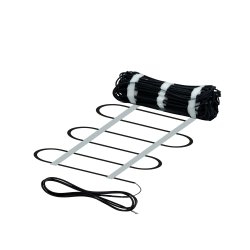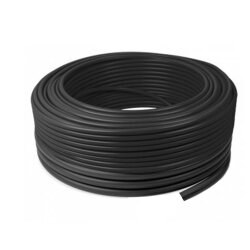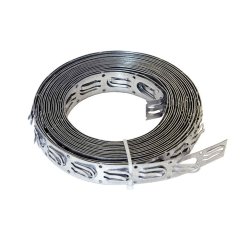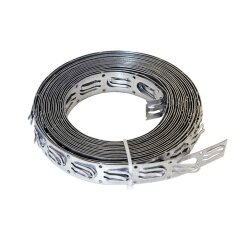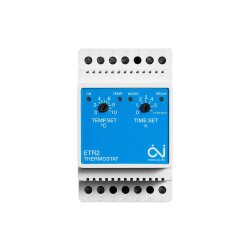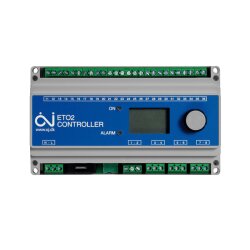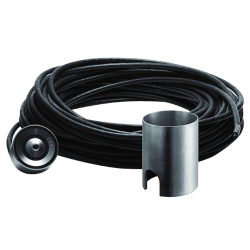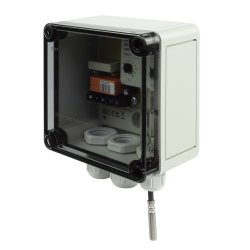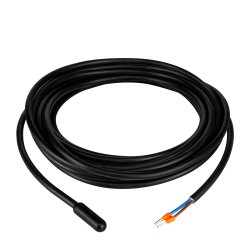Would you also like to install an electric outdoor heating system and still have questions? We will be happy to help you!
Electric outdoor heating systems: Preparation in summer for safety in winter

Minimise potential risks
Summer is the ideal time to take measures to protect ourselves from the dangers of snow and ice during the cold winter months. Electric outdoor heaters are a key tool in reducing potential risks in a variety of outdoor spaces. From loading bays and underground car park entrances to pavements and helipads, these heating systems offer protection against slippery surfaces and snow.
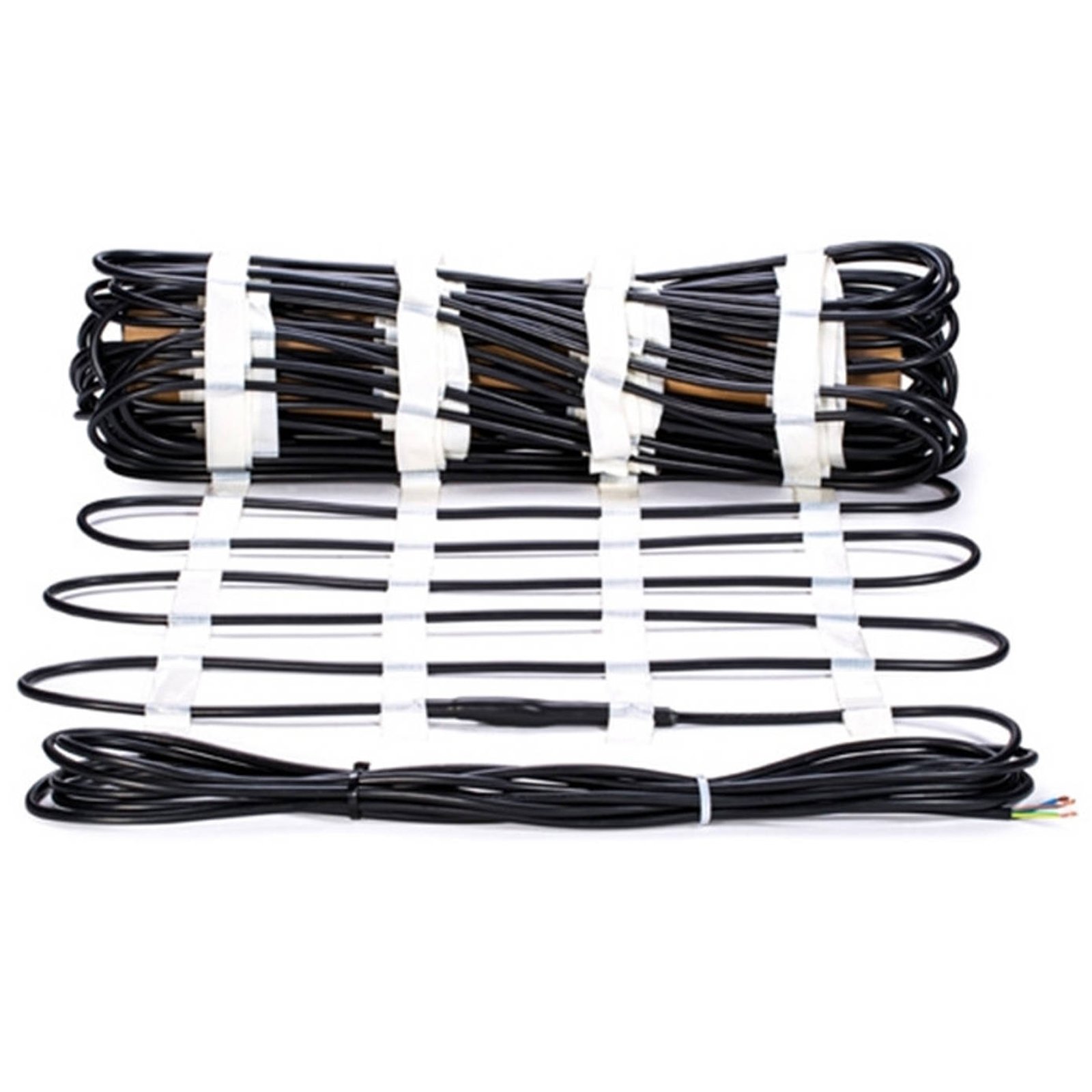
The importance of electric open-air heating systems
Electric outdoor heating systems are an essential part of winter preparation for companies and public facilities. They ensure safety on critical traffic areas and prevent accidents that can be caused by ice and snow. These systems are particularly important in areas that are used intensively and where constant availability is essential, such as:
- Loading ramps: Here they ensure unhindered logistics and prevent slips and accidents during the loading and unloading process.
- Underground car park entrances: An icy entrance can lead to dangerous situations. A heated surface ensures safe access to the car park areas.
- Car parks and pavements: These areas must be equally safe for pedestrians and vehicles. Slippery surfaces pose a considerable risk of accidents.
- Steps: Stairs in particular can become dangerous slides in winter. Heated steps prevent accidents and ensure safe access.
- Helipads: The safety of helicopter take-off and landing operations is a top priority. Heated landing pads offer decisive advantages here.

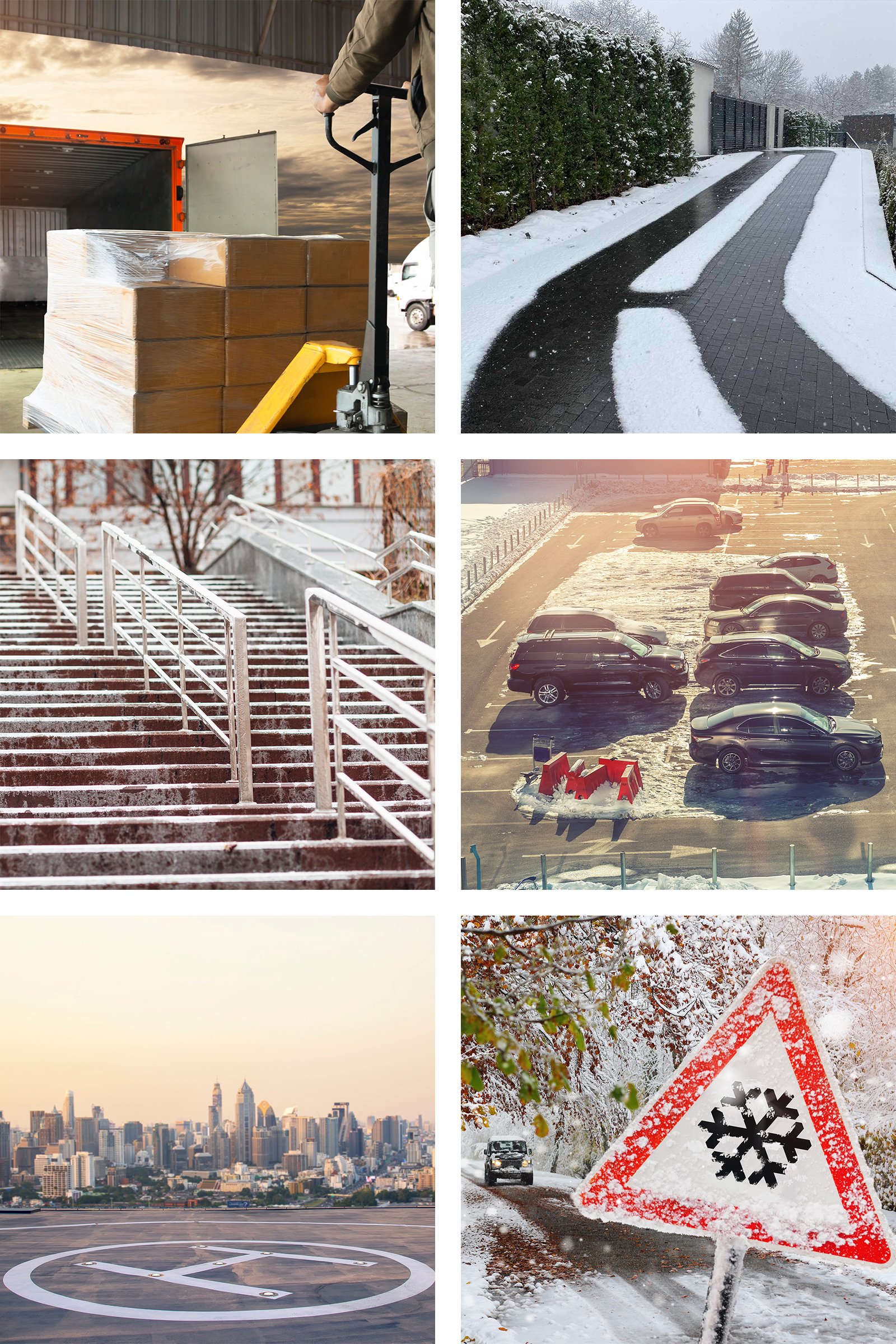
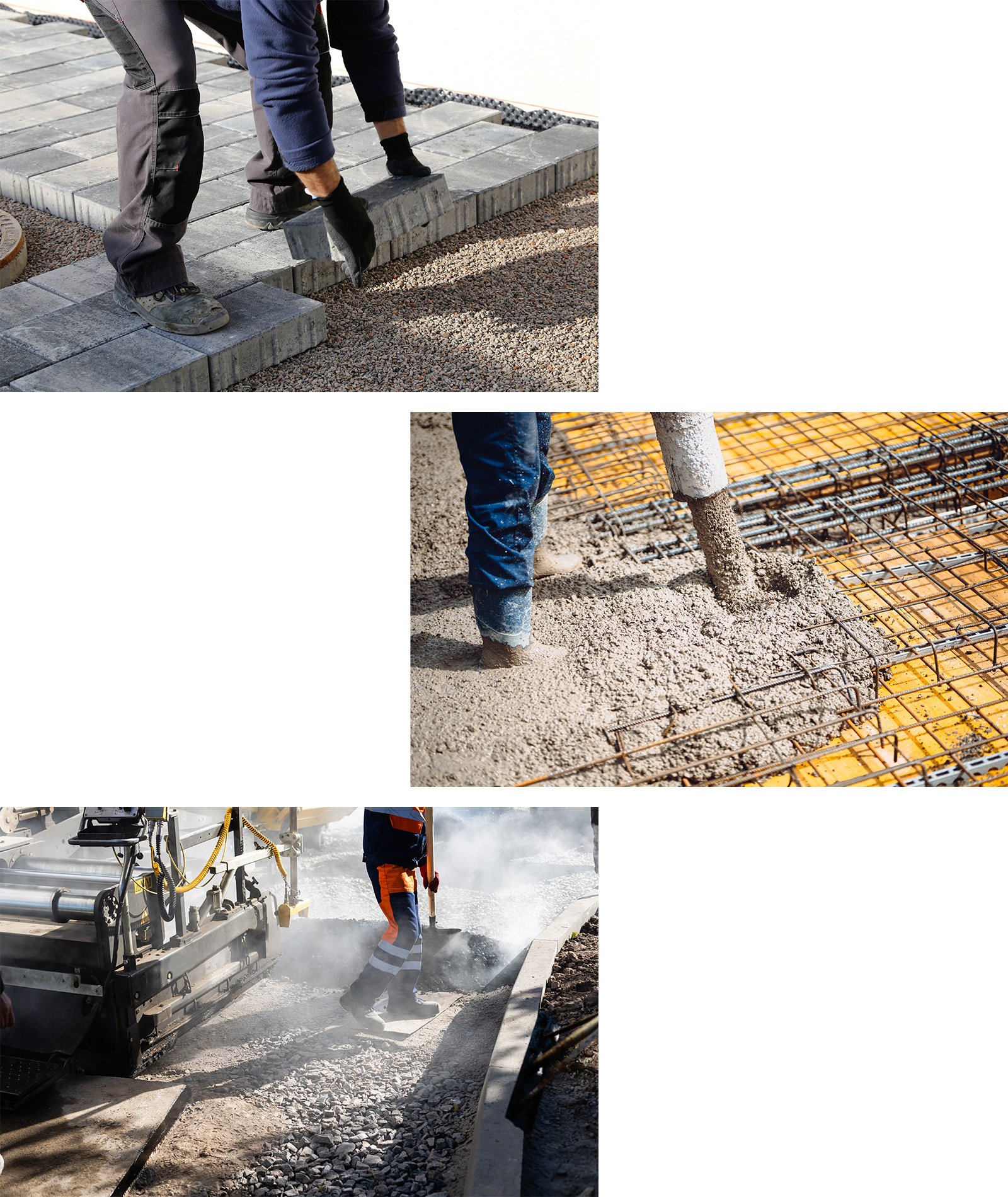
Optimal time for installation: Summer
The summer months offer ideal conditions for the installation of electric outdoor heating systems. With good weather and mild temperatures, the necessary construction work can be carried out efficiently and without weather-related interruptions. Planning and carrying out the installation in the summer months ensures that the heating systems are ready for use in good time before the cold season sets in.
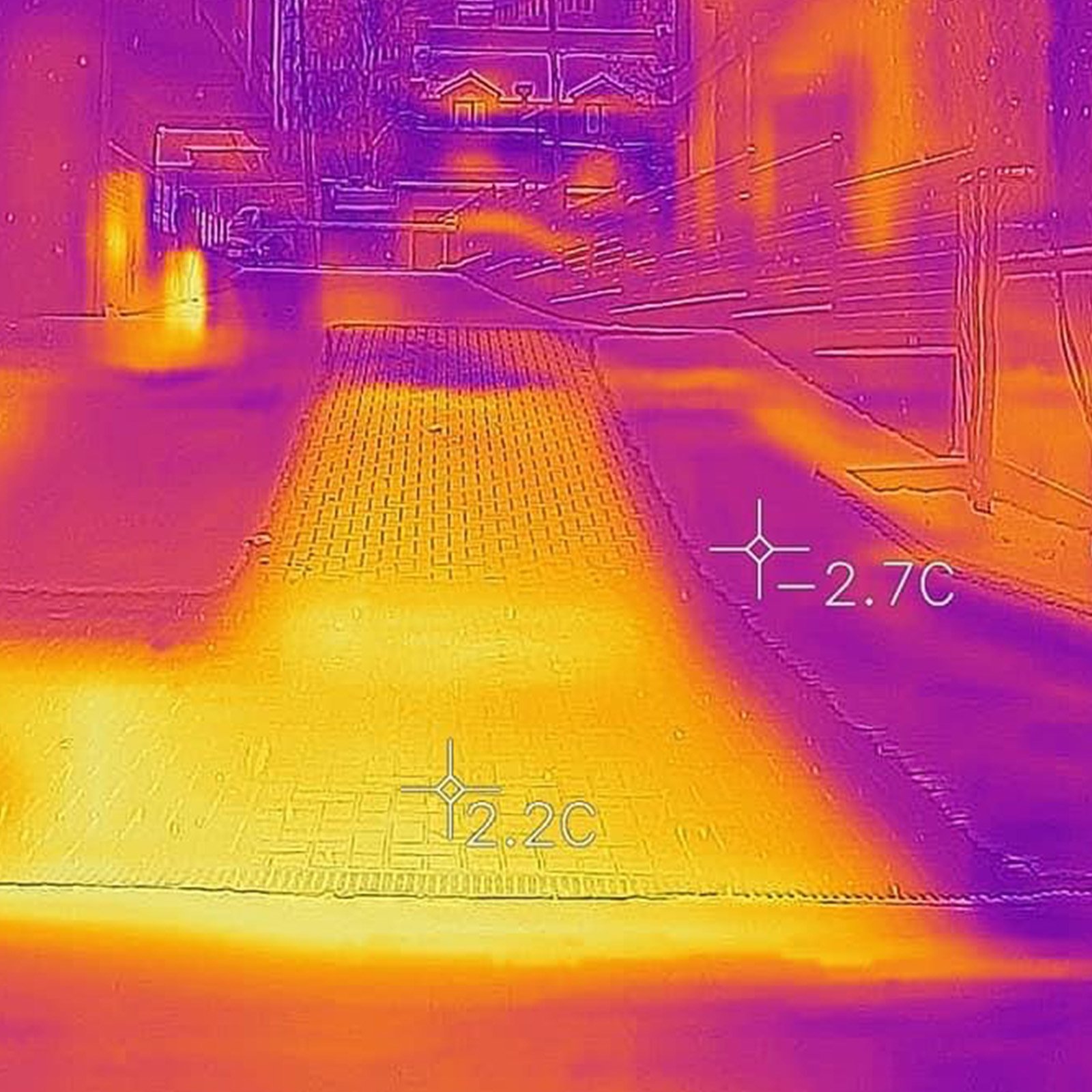
Installation of outdoor heating systems
The installation of electric outdoor heating systems requires careful planning and precise execution. There are various methods of installing the heating systems, depending on the type of area and the desired end result. Here are the most common methods:
- Installation in a grit bed under paving stones or paving slabs: This method is widely used and particularly effective for areas covered with paving stones or paving slabs (up to 80 mm thick with 300W/m² heating output or up to 110 mm thick with 400W/m² heating output). The heating cables are laid in a thin layer of washed chippings (paving chippings, at least 15 mm above and below) and then covered with the paving stones or slabs. This ensures even heat distribution and an aesthetically pleasing surface.
- Installation in concrete: Embedding the heating cables in concrete is a robust solution for heavily frequented or particularly stressed areas, such as loading bays or driveways. The cables are fixed to the armouring and then fully integrated into the concrete layer, which ensures durable and resistant heating.
- Laying in mastic asphalt: This method is particularly suitable for surfaces that require fast and efficient heat transfer. The mastic asphalt ensures good thermal conductivity and stable anchoring of the heating cables. Special insulation of the heating mats ensures the necessary temperature resistance to withstand the processing temperatures of the mastic asphalt of around 230°C.


Intelligent control systems for efficient operation
The efficient operation of electric outdoor heating systems is crucial in order to save energy and minimise operating costs. This is where intelligent control systems come into play, which measure humidity as well as temperature.
-
Automatic activation: The heaters are only activated when it is really necessary, e.g. in the event of snowfall or ice formation. This prevents unnecessary energy consumption.
- Optimised energy efficiency: Thanks to precise control, only the required amount of energy is used to keep the area free of ice and snow. This significantly reduces operating costs.
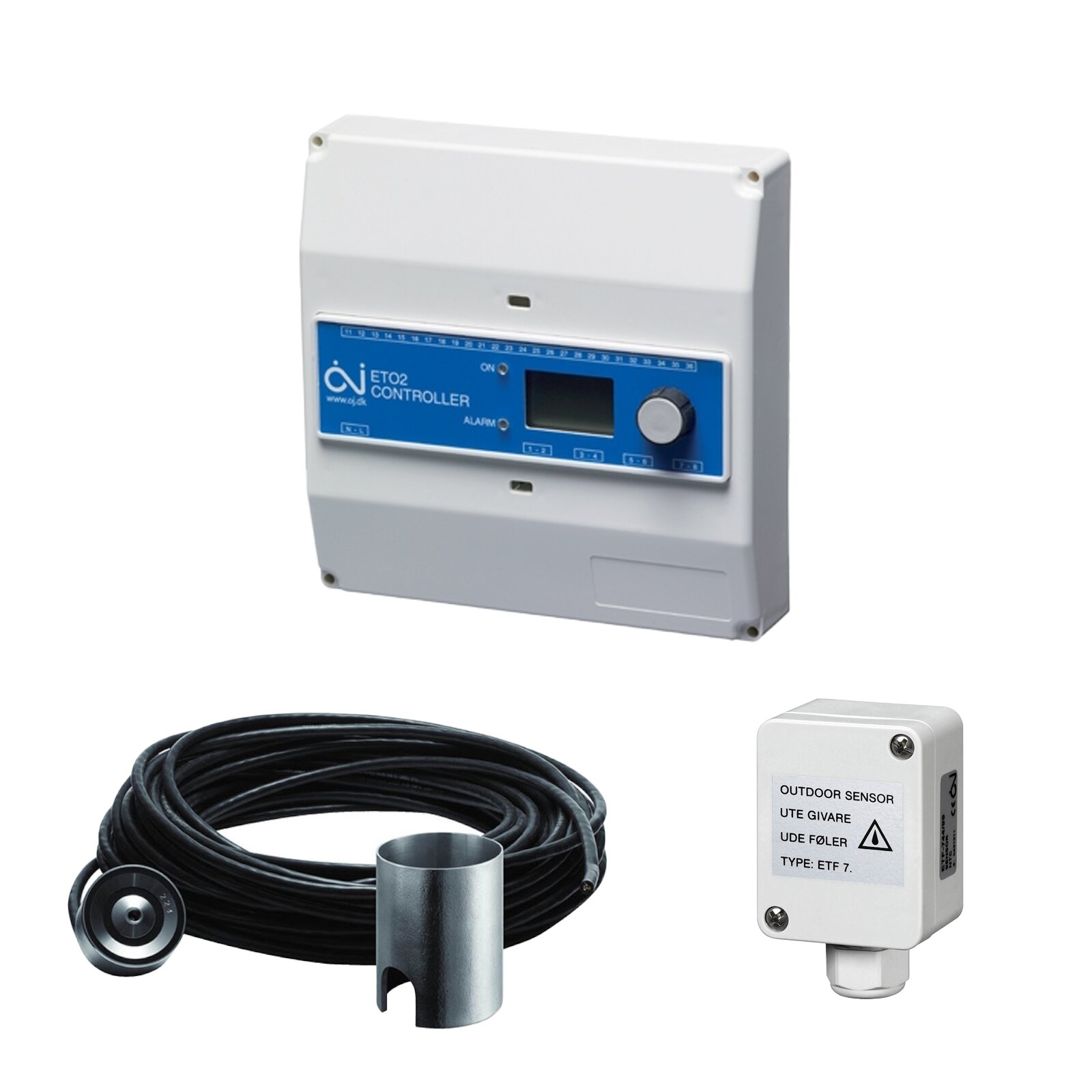
Conclusion: Don't wait, invest in safety now!
Electric outdoor heating systems are an excellent solution for ensuring safety in important traffic areas during the winter months. Installation in summer allows for timely preparation and ensures that the systems are ready for use when needed. Combined with intelligent control systems, these heaters can be operated efficiently and cost-effectively. Use the warmer months to equip your areas with modern heating systems and head into winter safely.

Heating elements: In order to meet the requirements of the preferred installation variant, we offer suitable heating cables in various designs. For example, ready-made heating mats with a width of 50 cm are available for large areas, some of which are also particularly temperature-resistant and suitable for laying in mastic asphalt. We also offer individual cables that allow for a particularly flexible design.
Control systems: Automatic control systems are essential for the economical operation of open-space heating systems. The entry-level price segment includes simpler control systems (e.g. TEV-1), which only measure the outside temperature and switch on the heaters above a set temperature threshold. However, these systems can also be activated in cold but dry weather where there is no risk of icy conditions. Systems that measure both temperature and humidity (ETR2 or ETO2 with ETOG-56 sensor) are much more efficient. This means that the heating system is only activated when there is an acute risk of slipperiness or snowfall.

 Deutsch
Deutsch

